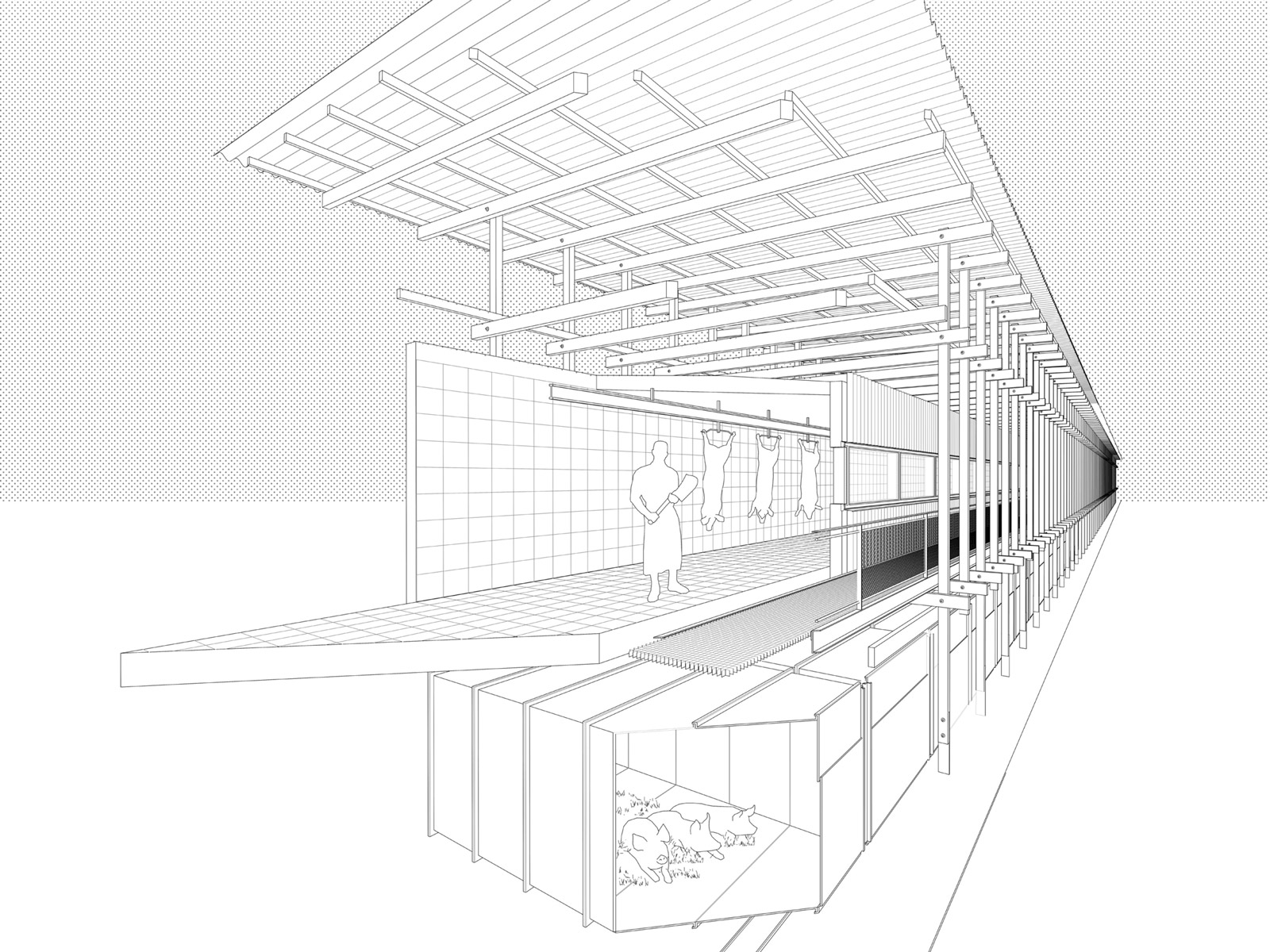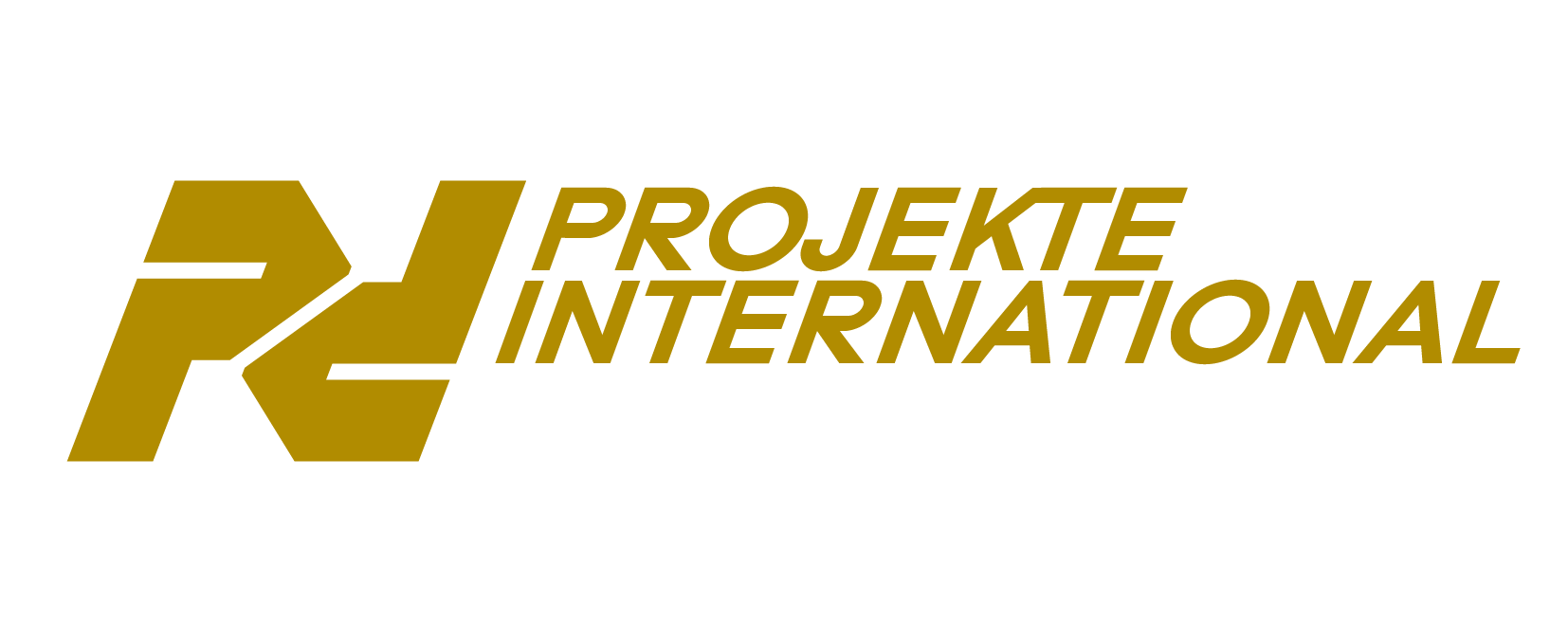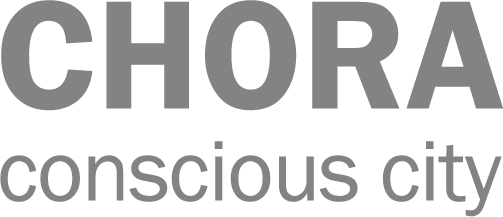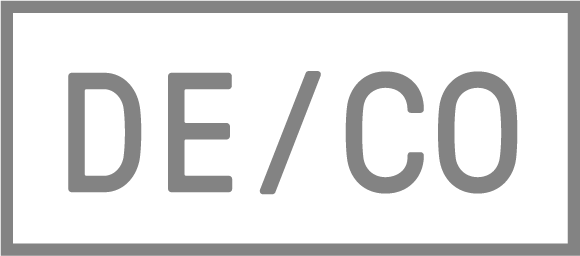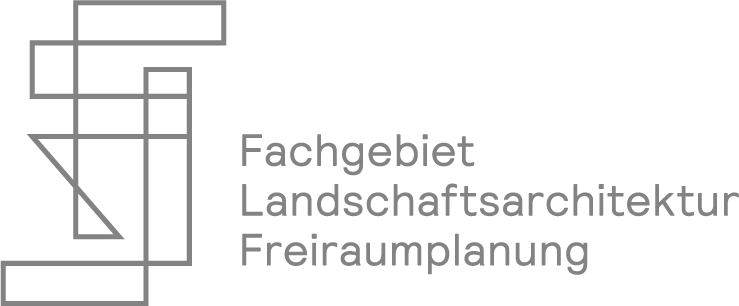MICROARTICLE #Food
From Factory to Farm
By: Valentin Doll
MICROARTICLE Food
Wissensstadt Berlin 2021
Published on June 26, 2021
In 2020, the slaughter volume of meat in Germany was about 8.5 million tons, that is an equivalent of approx [1], that's over 700 million poultry, over 55 million pigs, nearly 3.5 million cattle, and over 1 million sheep and goats [2]. While it would be naive to believe that our meat consumption will significantly decrease in the next few years, it may be worthwhile to reconsider the current production system, also given its environmental impacts today.
The presented design tries to manufacture a balance between the dignity of the animals and the needs of our consumer society: the arrangement of the wet areas is adapted to the natural urge of the animals to do their business as far away as possible from sleeping and eating places. The covered latrine area with slatted floor allows the animals to be kept permanently outdoors without too many nutrients entering the soil, and the covered feeding area serves as a control walkway for the farmer. The animals are thus, accustomed to human contact from an early age. Visitors can follow the life of the groups of pigs from birth to the end of fattening. Accessed via an arcade, the entire process of killing and processing can be viewed. The facility offers the consumer absolute transparency and increases the value of the product, making it possible to finance better conditions for people and animals.
BB2040
[EN] Berlin Brandenburg 2040 was initiated by the Habitat Unit in cooperation with Projekte International and provides an open stage and platform for multiple contributions of departments and students of the Technical University Berlin and beyond. The project is funded by the Robert Bosch Foundation.
[DE] Berlin Brandenburg 2040 wurde initiiert von der Habitat Unit in Kooperation mit Projekte International und bietet eine offene Plattform für Beiträge von Fachgebieten und Studierenden der Technischen Universität Berlin und darüberhinaus. Das Projekt wird von der Robert Bosch Stiftung gefördert.
